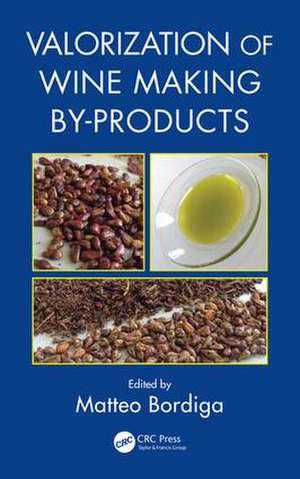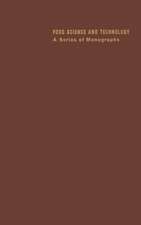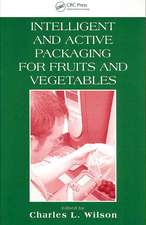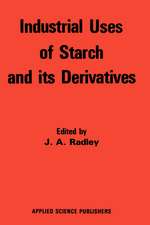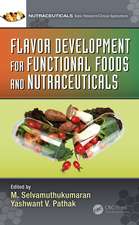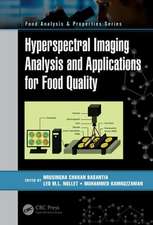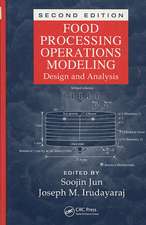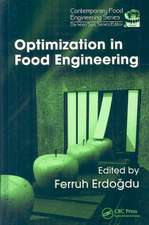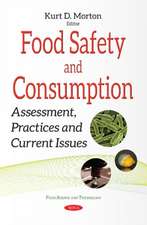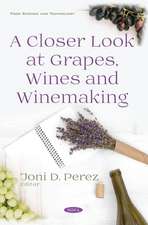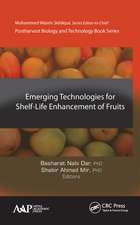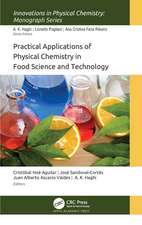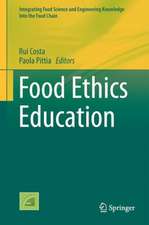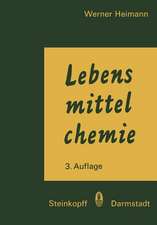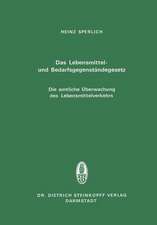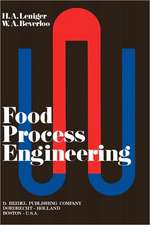Valorization of Wine Making By-Products
Editat de Matteo Bordiga, PhDen Limba Engleză Hardback – 23 oct 2015
Although vine cultivation and vinification generate a significant amount of waste and several by-products, generally only a very small portion of these materials are used. The book gives you a detailed overview of the typology of different by-products and describes several technological aspects of by-product utilization. It details regulatory, legislative, and sustainability issues before exploring marketing potential and future perspectives. The book highlights wine by-products as potential sources of bioactive phytochemicals, which could be used for various purposes in the pharmaceutical, cosmetic, and food industries.
Efficient utilization of food processing by-products represents challenges for the profitability of the food industry. In addition, during the next few years, the area of food processing waste management, where wine industry plays a leading role, will expand rapidly. This has resulted in the need for a detailed book on valorization of wine making by-products. In response, this book provides you with a number of value-adding technologies for the valorization of those products.
Preț: 1520.04 lei
Preț vechi: 1670.37 lei
-9% Nou
Puncte Express: 2280
Preț estimativ în valută:
290.85€ • 304.54$ • 241.25£
290.85€ • 304.54$ • 241.25£
Carte disponibilă
Livrare economică 20 martie-03 aprilie
Livrare express 05-11 martie pentru 38.55 lei
Preluare comenzi: 021 569.72.76
Specificații
ISBN-13: 9781482255331
ISBN-10: 1482255332
Pagini: 401
Ilustrații: 57
Dimensiuni: 156 x 234 x 23 mm
Greutate: 0.68 kg
Ediția:1
Editura: CRC Press
Colecția CRC Press
ISBN-10: 1482255332
Pagini: 401
Ilustrații: 57
Dimensiuni: 156 x 234 x 23 mm
Greutate: 0.68 kg
Ediția:1
Editura: CRC Press
Colecția CRC Press
Public țintă
Professional ReferenceCuprins
Overview. Wine Making Process. Wine Making By-Products. Technological Aspects of By-Product Utilization. Regulatory and Legislative Issues. Sustainability Issues. Marketing Potential. Future Perspectives. Index.
Notă biografică
Dr. Matteo Bordiga earned his PhD in food science from Università del Piemonte Orientale, Novara, Italy, in 2010. He received his MS in chemistry and pharmaceutical technologies from the same university. Currently, Dr. Bordiga is a postdoctoral fellow working on wine aroma analysis. Dr. Bordiga’s main research activity is in the area of food chemistry, investigating the different classes of polyphenols under analytical, technological, and nutritional points of view. More recently, his research interests shifted toward wine chemistry, where he focused on the entire production process—from vine to glass. He has published more than 20 research papers in peer-reviewed national and international journals. Dr. Bordiga’s current research is focused on two major areas: first, the development and application of analytical chemistry techniques to study wine flavor chemistry and the physicochemical interactions of flavors with nonvolatile wine components and, second, elucidation of the chemical mechanisms for observed health effects of wine and wine components. In the area of wine quality, his current interest is on the effect of oxidation on wine chemistry and how this affects important quality parameters of wine, such as taste and color. Dr. Bordiga also contributed to the development of general analytical methodologies of interest in wine by-products analysis. Considering this, over the past few years, wastes of winemaking have attracted considerable attention as potential sources of bioactive phytochemicals, which could be used for various purposes in the pharmaceutical, cosmetic, and food industries. All related research activities have been developed through important collaborations with foreign institutions, such as the Department of Foods Science and Technology, Foods for Health Institute, the University of California, Davis, United States; Fundación Parque Científico y Tecnológico de Albacete; and Instituto Regional de Investigación Científica Aplicada, Universidad de Castilla-La Mancha, Ciudad Real, Spain.
Descriere
Vine cultivation and the wine making process generate a significant number of waste by-products. including pruning, stem, pomace and seeds, carbon dioxide, and wastewater. Efficient utilization of food processing by-products represents challenges for the profitability of the food industry. Efforts need to be made to optimize the technology to minimize by-product waste. This book provides a comprehensive overview of wine making by-products and their potential utilization, presenting a number of value adding technologies for the valorization of those products.
